How The West Was Won: The 1998 Pacific Men's Soccer Team - Part 1
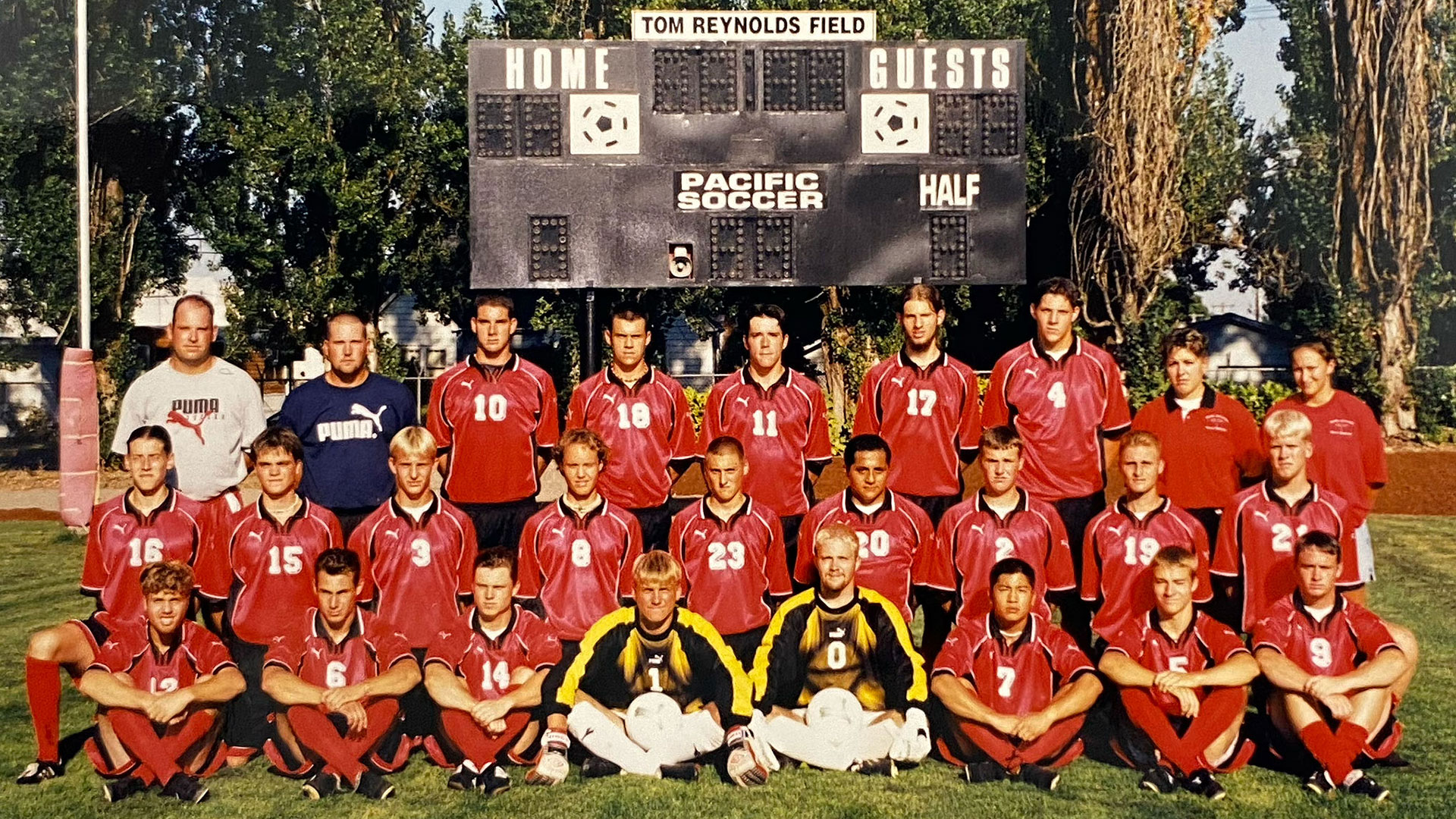
The team photo for the 1998 Pacific men's soccer team. Back Row (Left To Right): Head Coach Jeff Enquist, Assistant Coach Tim Copeland, Tad Detwiler, Matt Libbey, Rusty Sandusky, Joe Mus, Chris Burke, trainer Billie Good, trainer Christy Nelson. Middle Row (Left to Right): Aaron Mills, Bobby Nelson, Ty Kovatch, Chris Jacky, Matt Seidel, Francisco Aray, Brad Day, Todd Howarth, Jeff Mazurek. Front Row (Left to Right): Alan Abrams, Joe Maronick, Scott Heuston, Logan Williams, Ryan Stanley, Ben Hoang, Tyler Gist, Kiel Peck.
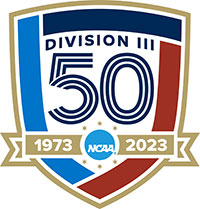 In 2023-24, NCAA Division III celebrates its 50th anniversary while Pacific University and other Northwest Conference institutions celebrate 25 years as full Division III members. As part of that celebration, we are chronicling the story of Pacific’s 1998 men’s soccer team, the first Boxer team to qualify for the NCAA postseason.
In 2023-24, NCAA Division III celebrates its 50th anniversary while Pacific University and other Northwest Conference institutions celebrate 25 years as full Division III members. As part of that celebration, we are chronicling the story of Pacific’s 1998 men’s soccer team, the first Boxer team to qualify for the NCAA postseason.
Part one of this three-part series chronicles the challenges of the team making the jump to Division III from NAIA play and introduces the personalities who made up the team.
Read The 1998 Pacific Men's Soccer Preseason Program (PDF) | 1998 Men's Soccer Roster (PDF)
Part 1: Welcome To The Association
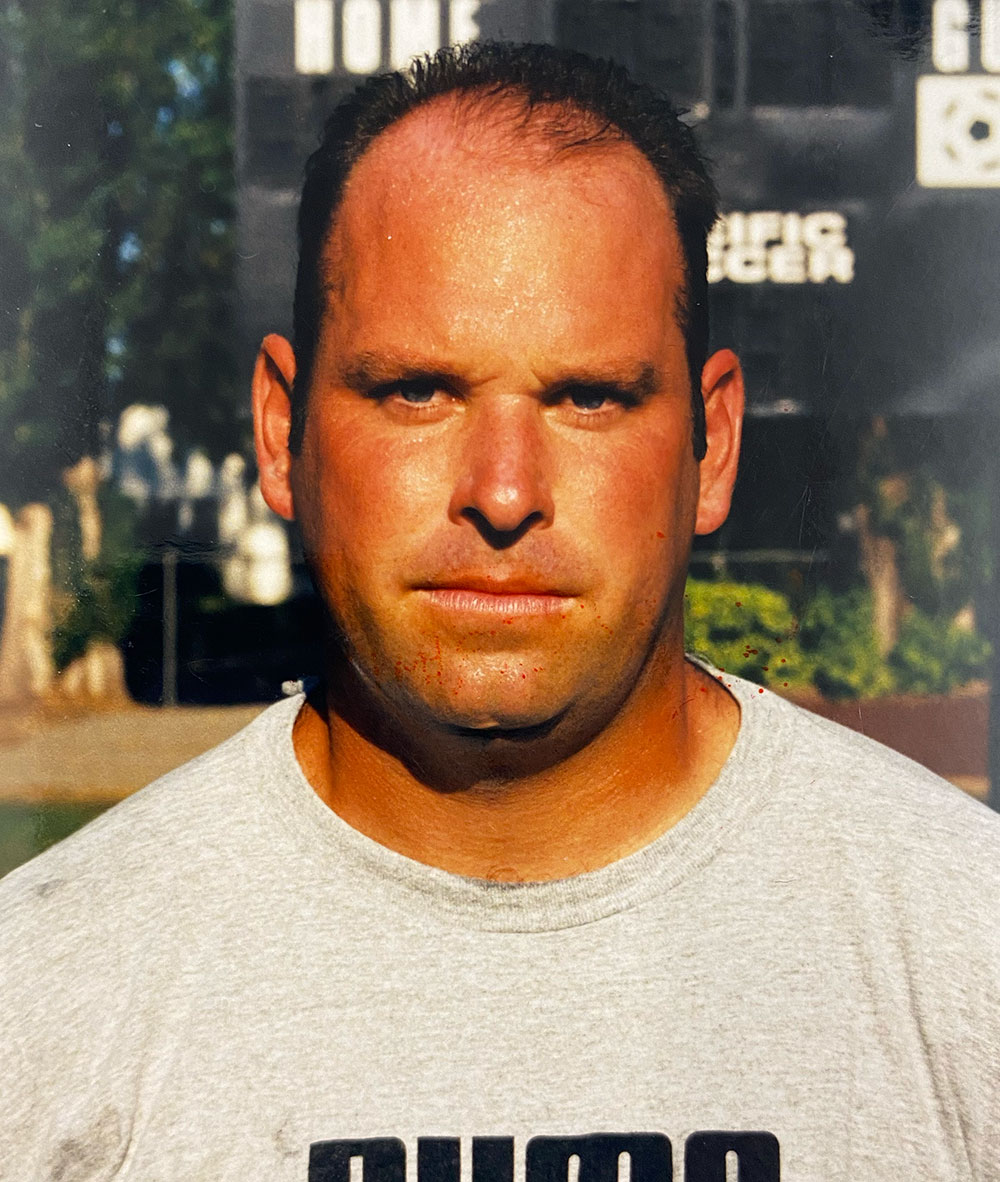
Jeff Enquist ‘98 knew that his team had done everything it needed to do to earn a playoff berth. Still, he wondered, would it be enough?
The year was 1998 and Pacific University, along with the rest of the Northwest Conference, was in its first season as a member of NCAA Division III. That made Pacific, and its eight conference counterparts, relative unknowns in a division dominated by schools in the Midwest and East.
In his five years at Pacific, the Boxers’ head men’s soccer coach had built the team into a program that picked up plenty of notice in the NAIA ranks. Entering the 1998 season, Pacific had amassed a 56-31-9 record in his first five seasons, won two conference championships and finished under .500 just once.
The Boxers had done everything on the field to make their case. They capped the regular season with a 14-5-1 record and went 12-4-1 in conference play. The team’s 36 points was one point behind NWC champion Seattle University, which was ineligible for the Division III postseason due to the university’s NCAA provisional membership status.
While Enquist had the perfect opportunity to advocate for his team as a member of the Division III West Region Advisory Committee, which would help select the postseason berths, he still wondered if the numbers would be enough to convince the rest of the committee that they were worthy.
“I think the biggest issue for us was figuring out how we would earn the respect of Division III teams on the East Coast, who didn’t know how to compare the Northwest Conference to the rest of their world,” Enquist said. “As we did our weekly calls, it was an uphill battle every week to try and move our teams up into the places in the rankings where they belonged. People didn’t have anything to compare it to. We were the unknown.”
As things worked out, the numbers were enough and more. Not only did Enquist’s team become the first Pacific team to make the NCAA postseason, but it also became the first NWC school selected as a postseason host, welcoming the best in the West Region to Tom Reynolds Field on Pacificʻs Forest Grove campus.
“I think we had a good feeling that we were going to get in, but certainly didn’t think we would host,” said Chris Burke ’00, a starting forward on the team. “So when the announcement came, we were all stoked.”
While many teams traditionally do not make the jump from one division to another successfully, Pacific men’s soccer team did. And while the Boxers may not have gained the national recognition they deserved from their Division III counterparts, they proved their worth in a run that ended five minutes and a goal short of a regional championship.
Great Expectations
After his arrival at Pacific in 1993, Enquist re-established Pacific as one of the conference’s soccer powers, bringing back a tradition of winning started under former head coach Jimmy Conway (who had moved on to Division I Oregon State).
But coming off the club’s banner 1996 season, which saw Pacific win 18 matches and finish eight points ahead of second-place George Fox for the NWC title, the 1997 campaign left something to be desired. The Boxers finished fourth in the NWC standings, tied with George Fox, well behind small college powerhouse Seattle University (which joined the NWC in 1997 for the transition to NWC Division III), and behind resurgent programs at Puget Sound and Pacific Lutheran.
While the Boxers’ 10 wins marked the third consecutive season with double-digit victories, the club’s fourth-place NWC finish was its worst in Enquist’s seven-year Pacific career.
The team was also coming to terms with the loss of a lot of experience, leadership and talent. Goalkeeper Nick Vorberg ‘97 and defender Billy Merck ‘97 would go on to play professionally, with Vorberg putting together a two-decade indoor career. The departures of defenders Merck and Wayne Waier ‘97 and forward Eric Pipher ‘98 (who tragically passed away in September 1998) left a serious void not only in terms of a backline but also in leadership.
While the drop in the conference table weighed on Enquist’s mind, filling the leadership void was the least of his worries. “When the guys stepped in, they already had that goal. There was no longer, ‘Let’s write on goals on the board.’ There was one goal: to make the playoffs,” Enquist said. “There was only one option and that was to win the conference. When everybody knows that’s the goal, then you’re not fighting uphill with anything.”
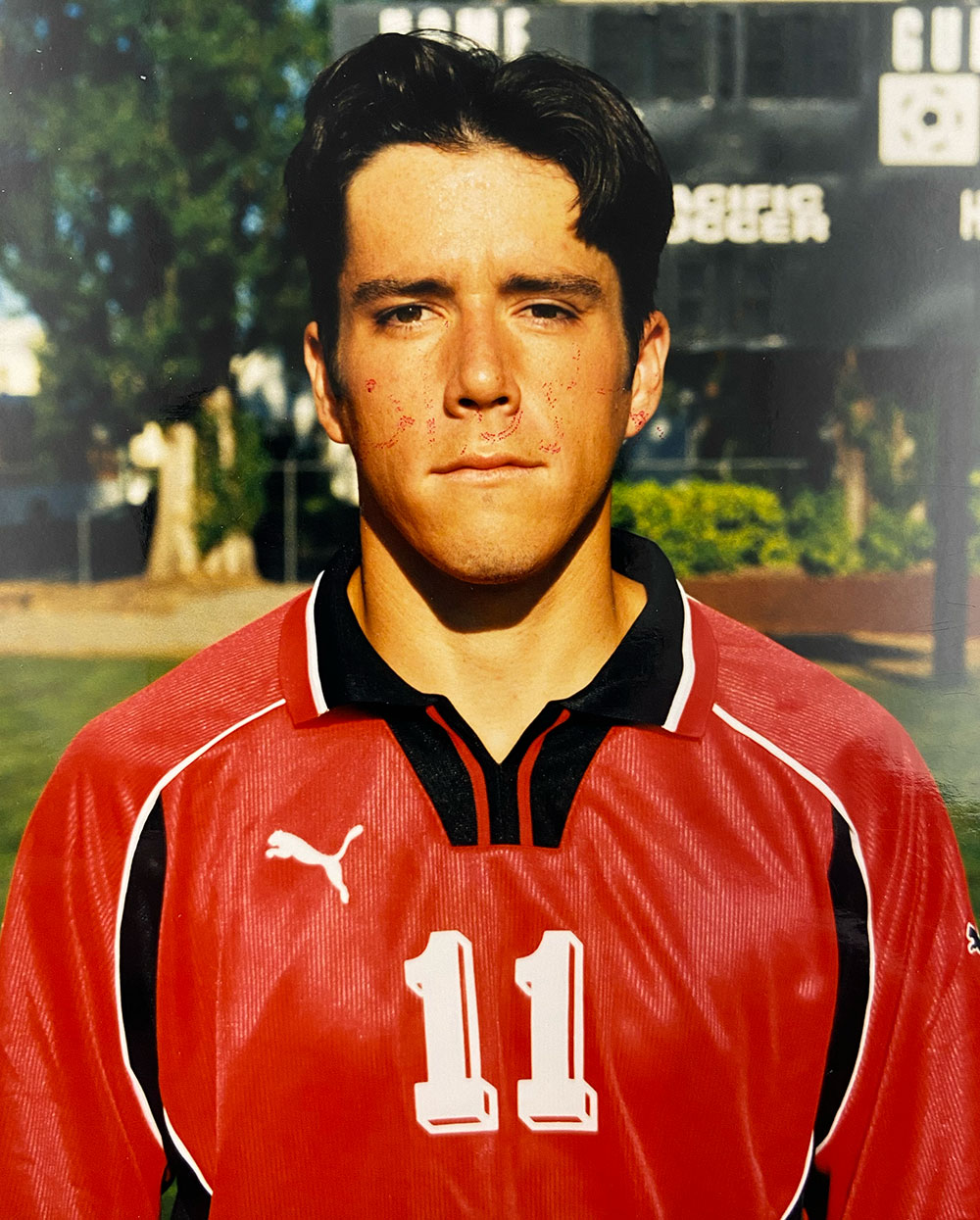 Rusty Sandusky ‘99, a skilled and confident forward, was the most experienced player on the team. He was in a rare fifth season with the program after sitting out the 1996 season. An Honorable Mention All-NWC selection at forward in 1997, Sandusky quickly became the team’s leader, setting the standard on the field and on the sideline. He came into the year especially hungry after having missed the first six matches in 1997 with a broken leg.
Rusty Sandusky ‘99, a skilled and confident forward, was the most experienced player on the team. He was in a rare fifth season with the program after sitting out the 1996 season. An Honorable Mention All-NWC selection at forward in 1997, Sandusky quickly became the team’s leader, setting the standard on the field and on the sideline. He came into the year especially hungry after having missed the first six matches in 1997 with a broken leg.
“It was a rough year (in 1997) with a really good team, but we also had a lot of new kids come in,” he said. “Jeff was always really good at getting guys to transfer in, but they didn’t know the system. I remember getting into it with a couple of guys. ‘No, dude. I know what Jeff wants, Stop, listen, do what I am telling you because this is what coach wants.”
“Rusty was just a competitor,” Enquist said. “You didnʻt like bringing him off the field because he would get mad at you. But he had six game-winners that year. Just a competitor.”
Sandusky was joined up front by Burke, who found 1998 to be a breakout season. After he spent the first part of the season on defense, Enquist finally moved him to forward, providing the Boxers a ready target up front and a key contributor on set pieces.
Despite the significant loss of experience in the defense, there were plenty of players and leaders ready to step up and fill the void. Tad Detwiler ’02, a senior midfielder, played in all 20 matches in 1997 with three goals and four assists. Joe Maronick ’01, a sophomore, played in 15 matches as a freshman and had quickly built a tough reputation.
“Joe is probably one of the better-skilled players that I’ve ever played with,” Burke said. “He definitely was not a verbal person, but he just led by example.”
“Joe didn’t say a whole lot but, as a defender, you really didn’t want to face him,” Enquist said. “He was individually one of the best defenders that I have ever coached.”
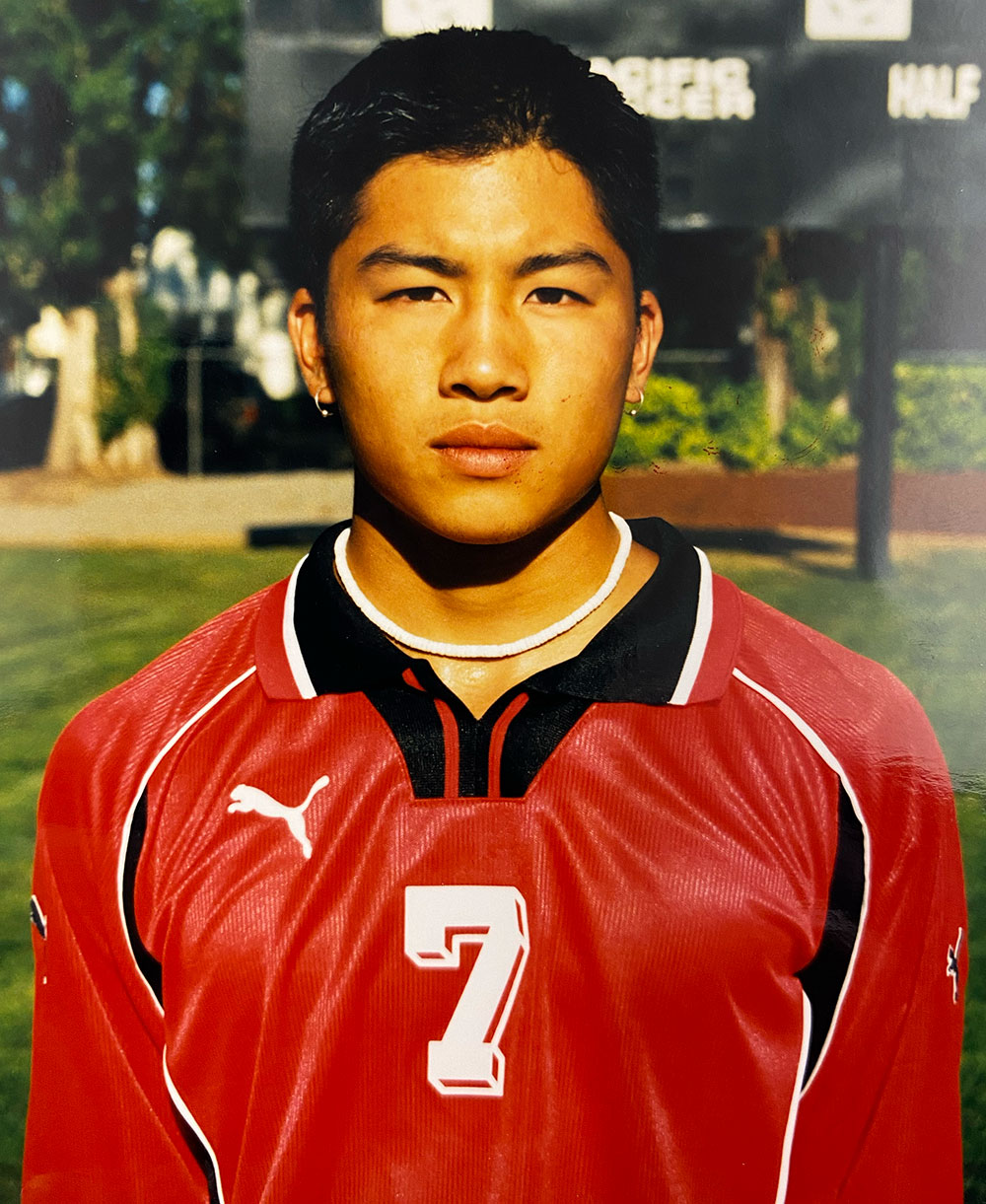 Ben Hoang ’00 emerged as a defensive leader, starting all 22 matches. He was recruited out of Vancouver, Washington as a midfielder, but Enquist moved Hoang into a defensive role early in his Pacific career. After not playing in 1996, Hoang played in 16 matches in 1997 and quickly established himself.
Ben Hoang ’00 emerged as a defensive leader, starting all 22 matches. He was recruited out of Vancouver, Washington as a midfielder, but Enquist moved Hoang into a defensive role early in his Pacific career. After not playing in 1996, Hoang played in 16 matches in 1997 and quickly established himself.
“If I had to pick one player on that team that was the backbone, I’m going to give it all up to Benny,” Sandusky said. “The goal-scorer always gets the credit, but it was Benny. He was the backbone of that team.”
The goals of the team were not lost on Ryan Stanley ‘02, a freshman from Honolulu who found himself thrust into a starting goalkeeper role just two matches into the season. “There was no ‘We think we can make the playoffs.’ It was ‘We’re gonna go to the playoffs,’” he said. “The seniors, Rusty, Ben and Tad, set the standard of how we were going to perform. For me, when I look back, it seemed that going to the playoffs was a given.”
Progress toward that goal included a preseason full of conditioning that included more running than anything else, a hallmark of Enquist-coached programs. Three-a-day practices were the norm in August, including timed two-mile runs, 40-yard shuttle runs and skill drills where players might not touch a ball during the first week. By the second week, scrimmages at the Cannery Field capped the day.
The training regimen made it clear who was in shape to play, not only to players and coaches but to the entire campus. “You could tell who was on the soccer team by the way they were walking stiff-legged down the stairs,” Stanley said.
“We ran a lot. We did a lot of triples,” Hoang said. “We would run the track in the morning, then we did a two-miler and then went back to campus for training.
“I remember we ran up Terwilliger Boulevard. We would start at the new soccer field at the bottom of the hill (Duniway Park), run all of the way to the top and run all of the way back down. That was a crazy run. Training was tough.”
By the end of the preseason, though, the Boxers were in shape and ready to enter a run of five matches over the first eight days of the season that, they hoped, would set the table for a run of success.


